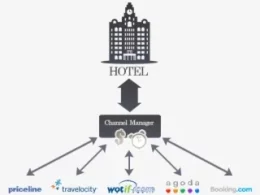In today’s digital age, online communities have become a vital aspect of our social and emotional lives. From social media platforms like Facebook and Twitter to specialized forums and groups dedicated to specific interests, online communities provide us with a sense of connection and belonging that is essential to our psychological well-being. In this article, we will explore the psychology of online communities and the human need for connection.
The human need for social connection is a fundamental aspect of our psychological makeup. It is an innate drive that is essential to our survival and well-being. From a young age, we seek out social connections with others, and as we grow older, these connections become more important than ever before. Studies have shown that social isolation and loneliness can have significant negative impacts on our physical and mental health, including an increased risk of depression, anxiety, and other mental health disorders.
Online communities have emerged as a powerful tool for fulfilling our need for social connection. They allow us to connect with others who share our interests, hobbies, and values, regardless of our physical location. They provide us with a sense of belonging and acceptance, and they allow us to form meaningful relationships with others, even if we have never met them in person.
One of the key reasons why online communities are so successful is that they provide us with a sense of identity and purpose. When we join an online community, we become part of a group of people who share our interests and values. This sense of identity and belonging is essential to our psychological well-being, and it can help to mitigate feelings of loneliness and isolation.
Another important aspect of online communities is the sense of support and empathy that they provide. When we are going through difficult times or facing challenges, online communities can provide us with a source of support and encouragement. They allow us to share our experiences with others who understand what we are going through, and they can help us to feel less alone and isolated.
However, it is important to note that not all online communities are created equal. Some communities can be toxic or harmful, and they can exacerbate feelings of loneliness, isolation, and depression. It is essential to be mindful of the communities that we participate in and to seek out communities that are positive, supportive, and inclusive.
In conclusion, the human need for social connection is a fundamental aspect of our psychological makeup. Online communities have emerged as a powerful tool for fulfilling this need, providing us with a sense of identity, purpose, and support that is essential to our well-being. However, it is important to be mindful of the communities that we participate in and to seek out communities that are positive, supportive, and inclusive. By doing so, we can harness the power of online communities to enhance our lives and improve our overall psychological well-being.












